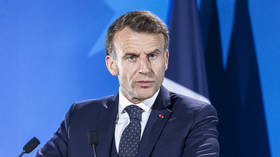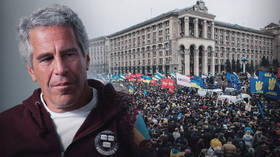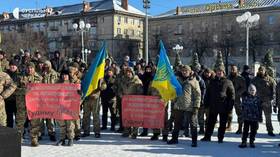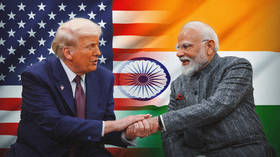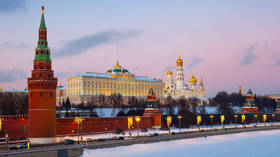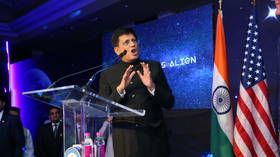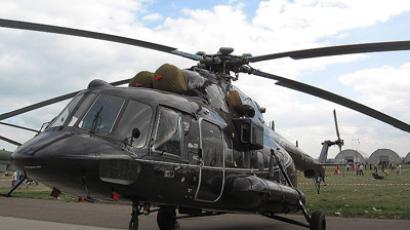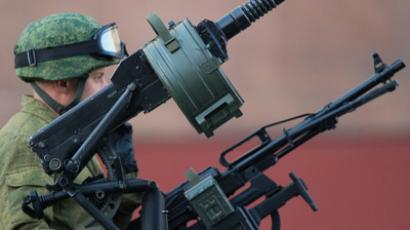UN passes ‘landmark’ Arms Trade Treaty, despite key abstentions
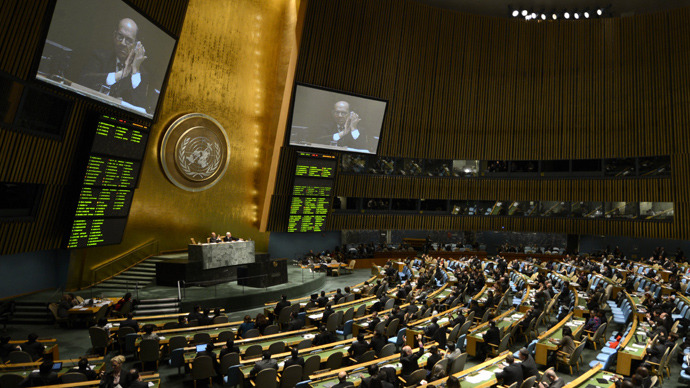
The United Nations General Assembly has overwhelmingly voted to adopt the first ever treaty regulating international arms trade. Nonetheless, abstentions from major exporters and importers may limit its effectiveness.
154 countries voted for the treaty in New York, while Iran, Syria and North Korea voted against, and 23 countries abstained.
The treaty – which will be open to signatories from June – encourages exporters to openly publish their trade deals to avoid conventional weapons falling into the arms of terrorists, unscrupulous middlemen and criminals. The deal contains no mechanisms for punishing those who do not comply with its terms.
UK Prime Minister David Cameron said the vote produced a "landmark agreement that will save lives and ease the immense human suffering caused by armed conflict around the world."
The treaty was only taken to the floor after a UN arms conference on it – which required unanimity to pass the treaty - collapsed last week. Objections were initially raised by Iran and North Korea, which are already subject to heavy weapons embargoes, who claimed the accord might be used to restrict their access to the international weapons market even further. Syria, which is in the midst of a civil conflict, later joined them.

Once a complete consensus was no longer required, other doubters emerged.
Russia and China – which both abstained during Tuesday’s vote – said that the vague criteria defined in the document may lead it to being manipulated for political ends, with various hostile countries defined as “human-rights abusers”. Russia also wanted the document to ban the supply of arms to non-state actors, such as rebels in the recent Arab uprisings.
India, another country that refused to endorse the treaty, and a major importer of arms, claimed the treaty gave excessive leverage to exporting states, who would be allowed to unilaterally break contracts for supposed ethical violations.
The United States – the biggest exporter in a worldwide market worth $70 billion dollars annually – did vote for the proposal, despite a sustained campaign from the National Rifle Association, which claimed that it would endanger the rights of Americans to bear arms (something the treaty text explicitly denies).
Journalist Pepe Escobar thinks the treaty is a mere spectacle
put on by the United Nations, whose chief mistake is having no
mechanism for enforcing the rules stipulated in the treaty, while
the short-term impact of the treaty itself is questionable at best.
He added that some will only see the agreement as a business
opportunity. Speaking to RT, he had the following to say about
it:
“This looks like the UN putting up a good show for worldwide
consumption, but it won't fool anyone; not to mention it will have
virtually no impact short-term. There's no binding mechanism;
scores of countries simply will refuse to detail what kind of
lethal stuff they're trading."
"The key point may be that the US voted in favor and both Russia
and China abstained. Washington's take is that the Treaty will
benefit the immense US weapons industry (number one in the world);
so this is no more than strictly business self-interest."
"Finally, some African nations apparently seem to believe that the
Treaty will sort of reign in the black market; that's pure wishful
thinking. As if black marketers would care for a country's human
rights record, or where it stands on "terrorism"; once again, it's
just big business.”



